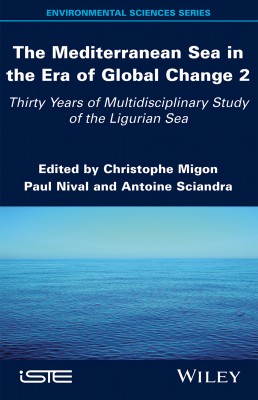
Due to its particular characteristics, the Mediterranean Sea is often viewed as a microcosm of the World Ocean. Its proportionally-reduced dimensions and peculiar hydrological circulation render it susceptible to environmental and climatic constraints, which are rapidly evolving. The Mediterranean is therefore an ideal site to examine, in order to better understand a number of key oceanographic phenomena. This is especially true of the Ligurian Sea where, due to its geology, oceanic conditions are found close to the coast.
As such, 30 years ago, an offshore time-series site provided a fresh impetus to a long history of marine biology research, which has generated a very important body of data and knowledge. This is the second volume, in a two-volume series, that summarizes this research. Across these two books, the reader will find 13 chapters that examine the geology, physics, chemistry and biology of the Ligurian Sea ? always with the goal of providing key elements of oceanography in a changing world.
1. Dissolved Organic Carbon Dynamics in the Ligurian Sea, Chiara Santinelli.
2. Dynamics and Export of Particulate Organic Carbon (POC), Beat Gasser, Scott W. and Juan-Carlos Miquel.
3. Zooplankton I. Micro- and Mesozooplankton, John Dolan and Virginie Raybaud.
4. Zooplankton II. Macroplankton and Long-Term Series, Paul Nival, Fabien Lombard, Janine Cuzin, Jacqueline Goy and Lars Stemmann.
5. Climate Change Effects on the Ligurian Sea Pelagic Ecosystem. What About Top Pelagic Predators?, Maurizio Würtz and Jean-Marc Fromentin.
6. A Biogeochemical Approach to Contamination of the Ligurian Sea, Daniel Cossa, Scott W. Fowler, Christophe Migon,
Lars-Éric Heimbürger-Boavida and Aurélie Dufour.
Christophe Migon is Assistant Professor at Sorbonne University in the Laboratoire d’Océanographie de Villefranche (LOV) in France. His research focuses on nutrient and trace metal dynamics, with particular attention to atmospheric deposition and air–sea exchanges.
Paul Nival is Emeritus Professor at Sorbonne University in the LOV. His research focuses on biological oceanography, copepod physiology, marine ecosystem modeling and the history of marine sciences.
Antoine Sciandra is a Research Director at the CNRS in the LOV. His research focuses on zoo- and phytoplankton ecophysiology, biological process modelling and microalgae enhancement.